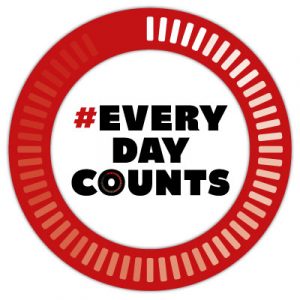Earlier this week Directory of Social Change surveyed the thousands of charities it supports to try and understand the real impact of the COVID-19 pandemic on charities across the UK.
The responses are shocking and confirm what DSC and others have been warning government about for weeks:
- Half of charities surveyed said they were already in financial difficulties due to the pandemic, with another 42% expecting to be soon;
- Over 60% of charities who responded are furloughing staff under the Coronavirus Job Retention Scheme;
- Just 7% of charities surveyed said they qualified for CBILS – the Business Interruption Loan Scheme, with just under half saying they did not qualify and over 40% saying they didn’t know;
- Over half of charity respondents say they will go bust within six months without additional financial help;
- Over 70% of charities surveyed report that they will go bust before the end of 2020 without additional financial help.
- Respondents also provided over 200 heart-breaking stories of the immediate and long term impacts on their beneficiaries. A selection of these is available below.
Commenting on the findings, DSC’s CEO Debra Allcock Tyler said ‘The Prime Minister, the Chancellor, the Treasury and other decision-makers in government must understand the gravity of these results quickly and take action now to provide swift, substantial and simple emergency financial support for the charity sector – #EveryDayCounts’.
What impact is the COVID-19 crisis having, or will this have on your beneficiaries?
“Lack of Support for veterans and families, no housing help and advice, no debt advice or contact case management, no wellbeing programs, no transition support, isolation, unemployment, poor mental health, poor wellbeing outcomes, domestic violence, drink, drugs, prison, homelessness.” Dave Price, Welsh Veterans Partnership
“Our young people don’t have their social, safe space to come and meet, they don’t get their free and subsidised meals and support from staff as readily.” Gayle Harris, Carmarthen Youth Project
“Trying desperately to keep services running – domestic abuse behaviour change work for perpetrators, relationship support, community outreach etc. but struggling as we are furloughing majority of our back office / infrastructure team to save money.” Michelle Hill, TLC: Talk, Listen, Change
“No Fracture Liaison Services, no website support, reduced helpline, research frozen into a cure for osteoporosis.” Craig Jones, Royal Osteoporosis Society
“No face to face services for the visually impaired like low vision assessments, access to benefits, family support and emotional support. This means that we struggle to keep them at home and independent.” David Mckeigue, Open Sight Hampshire
“No day opportunities for over 130 adults with mild to severe Learning Difficulties and Autism, including PMLD. Parents/carers having to support at home – no day respite for those parents/carers who work.” Nicola Thomson, Options for Life
“1000 people who are affected by poverty, are disadvantaged by circumstance, lives are in crisis will lose an easily accessible vital face to face free advice, care and support service. We have had to change to an online, telephone, email and social media, with Skype interviews being offered to vulnerable clients who are suicidal.” Rev. Leslie Gill, Helping Hands Community Trust
“A further reduction in residential rehabilitation beds for people with drug and alcohol problems. The main problem is the inability to test potential clients for Covid 19, in order to continue to protect the clients we currently have who are all Covid 19 free. Gradually as clients graduate we will be left with insufficient clients to carry on, but we can’t risk the health of our current clients, many of whom have compromised immune systems as a result of alcohol or drug abuse and we do not wish to expose our staff.” Tessa Corner, StreetScene Addiction Recovery
“No support for children with Autism in the Bury Lancashire area.” Jane Lord, Buddy’s for Children with Autism
“Our members are not able to have the oxygen treatment and regular therapies that they rely on that helps with the symptoms of MS and other neurological conditions.” Mary McDermott, Mercia MS Therapy Centre
For more information please contact Justin Martin, Directory of Social Change by email (justinmartin@dsc.org.uk)
[ENDS]
Notes to editors:
- Founded in 1974, the Directory of Social Change (DSC) is a national charity which supports an independent voluntary sector through campaigning, training and publications. DSC is the largest supplier of information and training to the voluntary sector, and its work helps tens of thousands of organisations every year achieve their aims. Learn more at dsc.org.uk
- The #EveryDayCounts campaign is a coalition of charity leadership and representative bodies including DSC, NCVO, Acevo, Navca, IoF, CFG, SCC, UK Youth, ACF and Volunteering Matters. The campaign is calling for the Chancellor to urgently introduce a £4 billion package of emergency support for the charity sector to prevent life-critical services from collapsing during the COVID19 crisis. For more information including background briefing see: https://www.cfg.org.uk/coronavirus_guide
